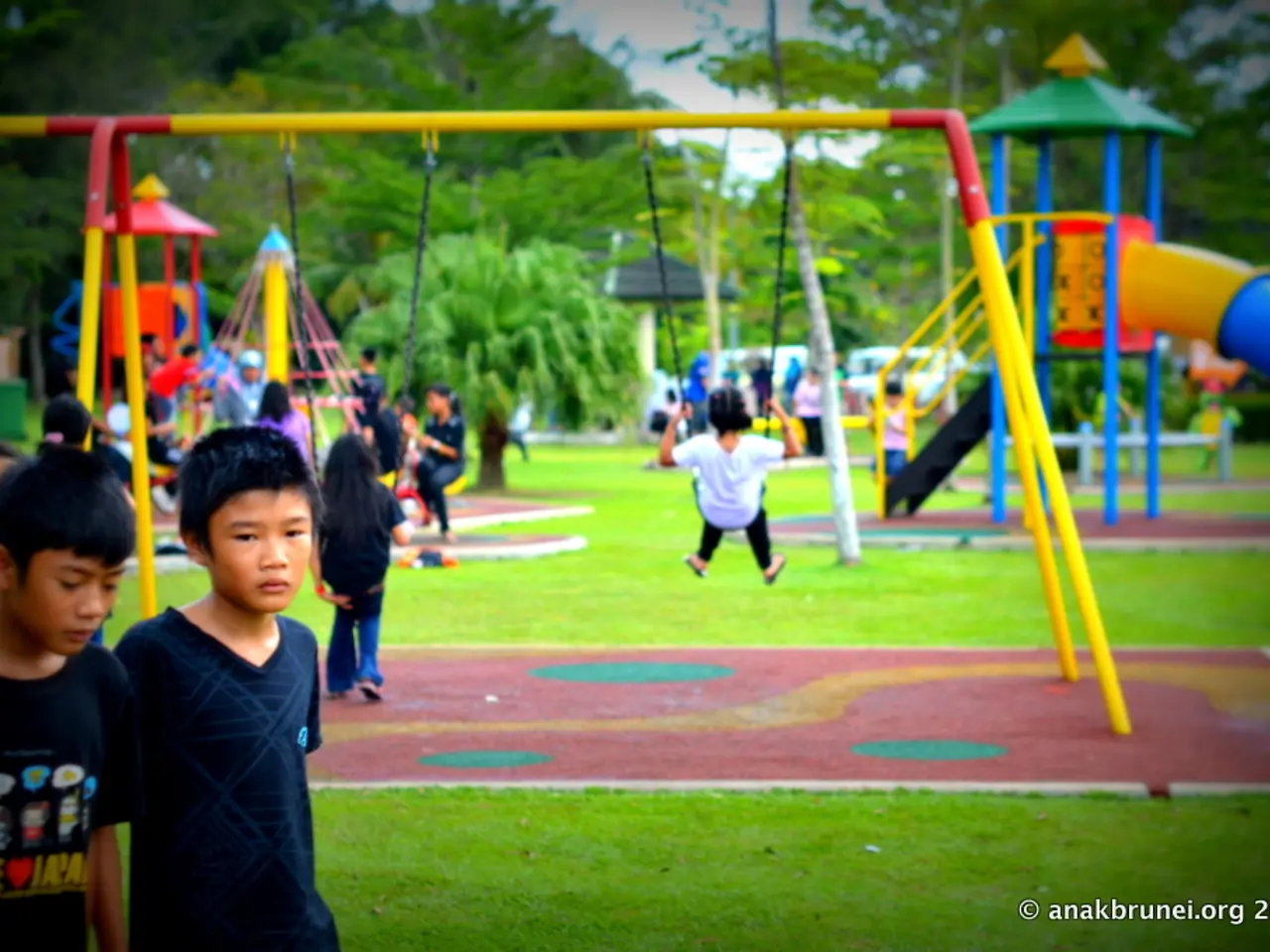Exploring Innovative Ways to Boost Nature Education through Podcasts, Inspiring Awe in Listeners
In the modern world, where technology is increasingly integrated into our daily lives, educational podcasts have emerged as a powerful tool for fostering a deeper understanding and appreciation of nature. By transforming podcast content into immersive learning tools, educators and parents can effectively promote environmental stewardship in children.
One such strategy is building a collection of nature recordings. These recordings can be incorporated into daily quiet time and reflection periods, providing a calming and educational backdrop. They can also be used to teach systematic observation techniques through audio-guided field experiences, helping children develop their observation skills and fostering a connection with the natural world.
To make the most of this resource, it's essential to select podcasts focused on outdoor learning and nature connection. Podcasts like "The Outdoor Classrooms Podcast" offer practical tips, strategies, and inspiration for transforming outdoor spaces into vibrant classrooms, encouraging playful and immersive learning in nature.
Integrating gardening and hands-on environmental projects is another effective approach. Podcasts such as "School Gardens with Ease" focus on creating flourishing food gardens linked to school curricula, helping children engage practically with plant life cycles, sustainability, and healthy ecosystems.
Encouraging nature connection to foster stewardship is crucial. The "Connecting Kids and Ourselves to Nature" podcast highlights the mental, physical, and conservation benefits of nature immersion. By designing curriculum elements that promote regular outdoor time and reflection on humans’ relationship with the environment, educators can counteract “nature deficit disorder” and inspire caring behaviors.
Setting measurable goals for outdoor engagement, such as the "1000 Hours Outside Podcast" encourages, motivates children to spend substantial, meaningful time outside, developing observation skills, curiosity, and a long-term emotional connection to nature.
Drawing connections between nature and broader worldviews can deepen children’s sense of responsibility for nature. Podcasts like "Nat Theo" combine natural theology and environmental education, helping children discover the wonders of creation alongside spiritual or ethical reflections.
Implementation suggestions include using podcast episodes as lesson starters or enrichment materials, pairing listening with outdoor activities, encouraging journaling or art creation inspired by podcast topics, and incorporating family engagement. Utilizing downloadable guides or curriculum packs can also streamline lesson planning.
By thoughtfully weaving educational podcasts into a nature-based curriculum, educators and parents can cultivate children’s knowledge, appreciation, and stewardship of the environment effectively and engagingly. This multi-sensory learning approach connects audio learning with real-world nature experiences, fostering lasting environmental values.
Furthermore, interactive nature walks with podcast guides can spark curiosity and deepen understanding. Field guides, magnifying glasses, and seasonal specimens at each station can encourage hands-on exploration alongside audio learning.
Conservation podcasts can provide insights into local habitat restoration projects and endangered species recovery efforts, fostering environmental stewardship through podcast discussions and action-oriented projects.
Scavenger hunts based on podcast content can transform passive listening into hands-on exploration, while educational fiction that teaches real concepts can foster imaginative storytelling. Discussing climate change and sustainability topics in an age-appropriate manner can also be beneficial.
In conclusion, educational podcasts offer a wealth of opportunities to enhance nature-based learning. By embracing these resources, educators and parents can create engaging, immersive, and effective learning experiences that foster a lifelong appreciation and stewardship of the environment.
- Beyond just nature, educational podcasts can also be useful in developing public speaking skills, providing valuable insights into effective communication strategies.
- Learning doesn't stop in the classroom. Expand your knowledge in fashion-and-beauty, food-and-drink, home-and-garden, and many more areas through informative podcasts.
- As you visit new places while traveling, immerse yourself in local culture by listening to podcasts that cover the history, lifestyle, and traditions of the people and place.
- Cars and automotive enthusiasts will find plenty of podcasts that delve into the world of cars, offering insights into design, engineering, and the latest technology.
- For those interested in personal growth and education-and-self-development, podcasts abound that feature discussions on personal finance, productivity, and mental health.
- If you have pets, find podcasts that provide advice on pet care, training, and behavior, while exploring the human-animal bond and pet-relevant news and trends.
- Strengthen your writing skills by listening to podcasts that focus on literature, grammar, and writing technique, which can broaden your understanding and improve your craft.




